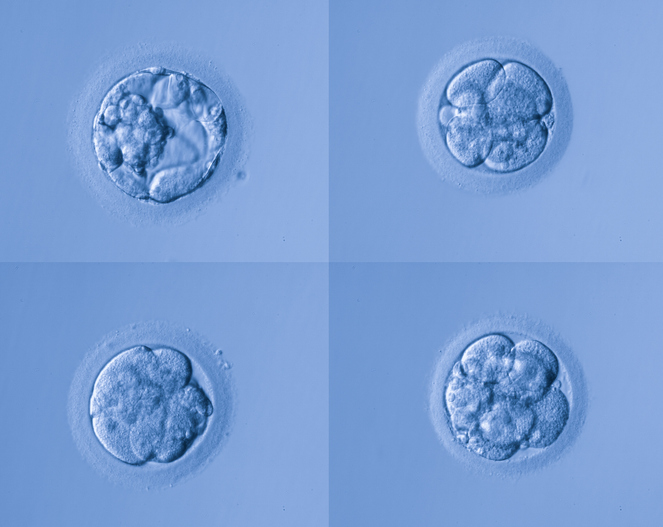.png)
.png)
As a Reproductive Endocrinology and Infertility (REI) specialist, I've had the privilege of guiding many women with diabetes through their fertility journeys. The intersection of diabetes care and reproductive health requires some unique considerations, but I'm continually inspired by the resilience and determination of my patients. Thanks to advancements in reproductive medicine, women with diabetes now have more options than ever for family planning.
In this article, I'll share how diabetes can impact fertility, the egg freezing process for women with diabetes, the potential for diabetic women to become egg donors, and important considerations for managing diabetes during fertility treatments.
Whether you're actively planning for a family, considering preserving your fertility for the future, or simply curious about your options, this guide aims to provide you with comprehensive, up-to-date information.
Type 1 vs. Type 2 Diabetes
Diabetes mellitus comes in two main forms that affect blood sugar control in different ways. Type 1 diabetes is a rare condition where the immune system mistakenly attacks and kills the cells that make insulin in the pancreas. Only about 1% of people in developed countries have this form. Without these cells, the body can't produce insulin, which is vital for controlling blood sugar. Making matters worse, the body also releases too much of a hormone called glucagon, which further disrupts blood sugar balance.
Type 2 diabetes is much more common, showing up in about 8.5% of adults. Instead of losing insulin-producing cells, people with Type 2 diabetes have cells that don't respond properly to insulin– a problem called insulin resistance. It's like having a key (insulin) that doesn't quite fit the lock (cell receptors) anymore.
While these conditions start differently, they can begin to look similar over time. People with Type 2 diabetes might eventually lose their insulin-producing cells, while those with Type 1 can develop resistance to insulin, especially if they gain weight from insulin shots or become less active. When someone with Type 1 diabetes develops significant insulin resistance, doctors call it "double diabetes"– it's like having aspects of both types at once. Both groups face similar long-term health risks, including increased chances of infertility.
Understanding the impact of diabetes on fertility
Diabetes can significantly affect a woman's reproductive health in various ways. The condition may disrupt hormone balance, leading to irregular menstrual cycles and potential ovulation issues. Women with diabetes, especially those struggling with blood sugar control, might face:
- Increased risk of vaginal yeast infections and urinary tract infections (UTIs)
- Difficulties conceiving
- Increased risk of complications during pregnancy
- Higher likelihood of polycystic ovary syndrome (PCOS)
- Premature ovarian aging
These challenges make it even more important for women with diabetes to consider their fertility options early. This is where egg freezing and donation can enter the picture.
Can I freeze my eggs if I have diabetes?
Egg freezing, or oocyte cryopreservation, is a medical procedure for women who want to increase their chances of conceiving down the line. For women with diabetes, this procedure can be particularly valuable. Generally someone with diabetes can safely freeze their eggs, but your doctor will evaluate your health and medical history on a case by case situation before giving you medical clearance.
If cleared, egg freezing can offer the opportunity to preserve eggs before potential diabetes-related complications arise, providing flexibility in family planning and reducing stress about declining fertility due to age or diabetes-related health issues.
The process of egg freezing for women with diabetes is similar to that for non-diabetic women, but with some important considerations:
- Strict blood sugar management is important before and during the egg freezing process.
- Women may need to work closely with their endocrinologist to adjust their diabetes management plan.
- Fertility medications used in the process may affect blood sugar levels, so insulin or other diabetes medication dosages might need tweaking.
- More intensive monitoring may be required throughout the process.
While egg freezing can be a game-changer, it's not without risks. Women with diabetes may have an increased risk of ovarian hyperstimulation syndrome (OHSS). However, with proper medical supervision and careful management of blood sugar levels, most women with diabetes successfully undergo egg freezing.
Can I donate my eggs if I have diabetes?
Many women with diabetes wonder if they can become egg donors. The answer isn't straightforward, and it depends on several factors, including the type of diabetes, duration of the condition, overall health, blood sugar control, and preferences of the fertility doctor.
All egg donors undergo a rigorous screening process, which includes:
- Comprehensive medical history review
- Physical examination
- Blood tests and genetic screening
- Detailed diabetes management assessment
Unfortunately, women who have Type I diabetes mellitus (T1DM) that was diagnosed in childhood (aka juvenile diabetes) are generally not eligible for egg donation. Most clinics also disqualify anyone with prediabetes or Type II diabetes. If you’d like us to review your specific case, please reach out.
Managing diabetes during fertility treatments
Whether pursuing egg freezing or considering egg donation, managing diabetes during fertility treatments is important. Maintaining optimal blood sugar levels can improve the quality of eggs, reduce the risk of complications, and potentially improve the success rates of the procedures.
Beyond medical management, lifestyle factors play a significant role. A balanced Mediterranean diet, regular exercise, stress management techniques, and adequate sleep all contribute to overall health and can positively impact fertility treatments.
Success rates and outcomes
Regarding success rates, the data for women with diabetes undergoing egg freezing is limited. However, there are studies of women with diabetes undergoing infertility treatments, like IVF. While we can't assume those outcomes directly translate to egg freezing success rates, they do provide valuable insights.
One study found that women with Type II diabetes and infertility have decreased ovarian reserve and a lower chance of pregnancy during IVF.
Another study found the same thing: that women with Type II diabetes had a “significantly decreased” chance of live birth. However, this study also found that women with Type 1 diabetes had an equivalent chance of a live birth per embryo transfer as women without diabetes, as long as their blood sugar levels were well-managed.
Looking to the future
The field of egg freezing for patients with diabetes is continuously evolving. Ongoing research focuses on improving ovarian stimulation protocols, enhancing egg freezing techniques, and better understanding the long-term effects of diabetes on egg quantity and quality.
For women with diabetes considering egg freezing or donation, it's important to have open, honest discussions with your fertility doctor.
While diabetes adds complexity to fertility and family planning, options like egg freezing are making it possible for more women with diabetes to pursue their dreams of parenthood. With careful management, expert medical care, and informed decision-making, women with diabetes can explore these fertility preservation options with confidence.










